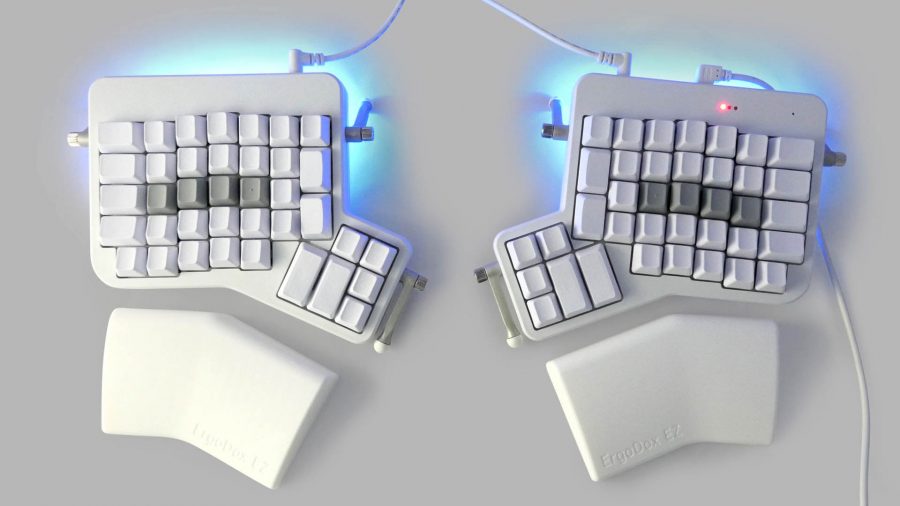10 Apr 2020 | Leetcode 30-Day Challenge: Day 10
Min Stack
Difficulty: Easy
Problem statement:
Design a stack that supports push, pop, top, and retrieving the minimum element in constant time.
- push(x) – Push element x onto stack.
- pop() – Removes the element on top of the stack.
- top() – Get the top element.
- getMin() – Retrieve the minimum element in the stack.
Example:
MinStack minStack = new MinStack();
minStack.push(-2);
minStack.push(0);
minStack.push(-3);
minStack.getMin(); --> Returns -3.
minStack.pop();
minStack.top(); --> Returns 0.
minStack.getMin(); --> Returns -2.
So…fun fact, I deleted all my code for this challenge on accident and had to redo it! Backstory: I went to make this post and I realized my vim setup sucked. Staying home due to COVID-19 has made me stir crazy. Well, that and my home setup has always been okay, but as I have grown older it no longer matches what I would consider to be an ideal work from home setup. Ten years of banging away at a keyboard has made me realize things:
- I probably won’t be switching careers any time soon.
- I should take care of my body because I only get one.
That being said, I’ve been less and less interested in “cool” hardware and more and more interested in ergonomics. Things that help keep my body in top shape so I can live a long, happy life. Stuff like standing desks, chairs or stools that improve posture, mice that are made to minimize the effects of RSI & carpal tunnel, etc. Of course, that has led me to really absurd ideas like swapping keyboard maps (something I’ve actually done before. I can type Dvorak decently. I could probably make an entire separate post on my feelings about alternative keymaps though), or keyboards like the Kinesis Advantage 2 and ErgoDox EZ (pictured below).
 The Kinesis Advantage 2
The Kinesis Advantage 2
 ErgoDox EZ
ErgoDox EZ
Anyway, I’m going down a rabbit hole here, but basically I’ve been trying to redo my home setup to make it match what I currently want in a work desk - because it’s definitely not that. The first part came today, and that was my 32 inch BenQ HDR display. It’s awesome. I forgot how badly the web sucked in 4k though. Still looks like we have a ways to go there, so I had to scale the text up a bit otherwise it’s absurd and unreadable.
Other than that, it’s great. Took some time to get everything configured, but I completely moved my Windows/Linux PC into the closet for the time being. I don’t know if I really need it anymore. Lately I’ve been thinking more about living more “minimalist” and a big, loud desktop PC that dual boots is just not something I need anymore. If I have my MacBook Pro and a dock, I can do everything I need to do. So that’s the plan going forward: just my MacBook Pro and a dock. I can dock in when I’m home and use the big display - then when I need to head to class or I’m traveling, I can just grab it and go - no more syncing filesystems or pushing to repositories, it’s the same machine.
Anyway, I’m totally off-topic. I got lost in vim configuration for this new display and totally deleted my solution like a dumbass. I tried to recover it, but leetcode doesn’t save your solution, so I had to solve it again. Fortunately for me, I could use the practice and it was pretty easy anyway.
This solution doesn’t really have a time complexity because today you’re designing an object. I suppose if we were to look at the functions I was asked to design and ask ourselves which has the worst time complexity, it would be GetMin() which has a time complexity of O(n). The space complexity of the object would just be O(n) as well - the size of the elements that you push onto it.
type MinStack struct {
stack []int
}
/** initialize your data structure here. */
func Constructor() MinStack {
return MinStack{}
}
func (this *MinStack) Push(x int) {
this.stack = append(this.stack, x)
}
func (this *MinStack) Pop() {
this.stack = this.stack[:len(this.stack) - 1]
}
func (this *MinStack) Top() int {
return this.stack[len(this.stack) - 1]
}
func (this *MinStack) GetMin() int {
min := math.MaxInt32
for i := 0; i < len(this.stack); i++ {
if this.stack[i] < min {
min = this.stack[i]
}
}
return min
}
/**
* Your MinStack object will be instantiated and called as such:
* obj := Constructor();
* obj.Push(x);
* obj.Pop();
* param_3 := obj.Top();
* param_4 := obj.GetMin();
*/